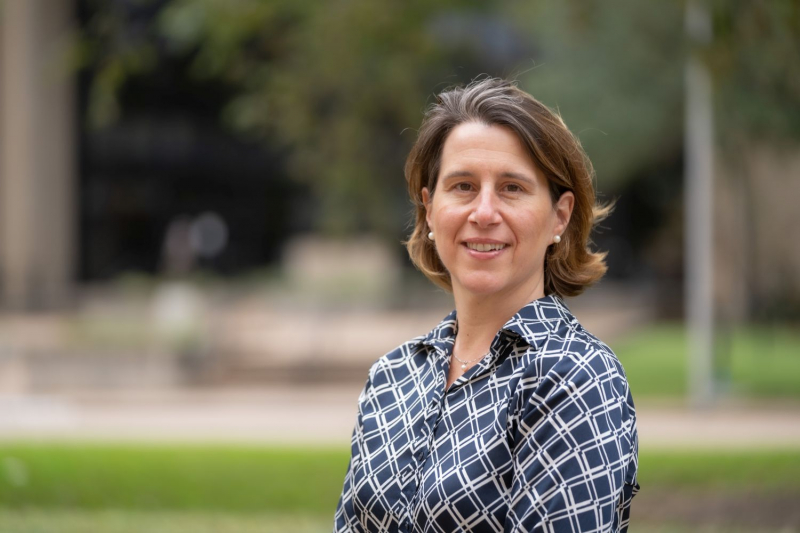A research professor at the Cullen College of Engineering has received a federal grant for about $700,000 to develop a rapid screening test for a specific form of leukemia that has severe health risks without prompt detection.
Katerina Kourentzi, Ph.D., a Research Associate Professor in the William A. Brookshire Department of Chemical and Biomolecular Engineering, received the funding from the U.S. Army Medical Research Acquisition Activity (USAMRAA). The $699,828 grant, “Novel Point-of-Care Test for the Early Detection of Acute Promyelocytic Leukemia,” is the first federal funding award that she has received as principal PI.
“As you could imagine, this being my first federal grant as the principal investigator, my reaction was quite dramatic,” she said. “I was ecstatic! Beyond that, the idea of a rapid test to aid in cancer diagnosis is quite intriguing. We will need to implement many scientific and technological advances to be able to detect the low level of a cancer protein in blood in 30 minutes, and thus, we will be solving many technical challenges on the way. It is quite exciting.”
Kourentzi added, “In 2018 I received two small grants from the University of Houston's GEAR program and the Ladies Leukemia League that enabled us to produce strong feasibility data to be able to apply for a large federal grant. I am very grateful for that support, too.”
According to background information provided in the grant application, Acute Promyelocytic Leukemia (APL) accounts for about 5 to 8 percent of the annual 20,000 cases of acute myeloid leukemia (AML) cases in the United States. APL can occur at any age, but the median age is 40 years, younger than the 70 years for other AMLs. APL presentation is accompanied by severe, life-threatening bleeding in 40 percent of patients. If detected on time, the long-term survival rate is 90 percent with the available treatment. There is not a standard rapid screening test to enable prompt initiation of the treatment.
The effort builds on previous research that Kourentzi has done, which improves a technology similar to that of the conventional home pregnancy test.
“We are developing an ultrasensitive, rapid diagnostic test for a specific type of leukemia,” she said of her team's current research goal. “The test resembles a rapid COVID-19 test that nowadays everybody is familiar with. The issue here is that this specific type of leukemia – Acute Promyelocytic Leukemia – is treatable with a special type of chemotherapy if detected early. The timing here is quite critical, since patients deteriorate very fast, within hours of first presenting at the hospital. The current diagnostic tests to confirm this specific type of leukemia take from a few hours to a couple of days, which are unfortunately not fast enough. Our collaborators in Methodist Hospital and MD Anderson Cancer Center are quite excited by the prospect of a complementary rapid screening test to aid in timely diagnosis and the early administration of therapy to save the patient.”
For this specific project, Kourentzi said she would be teaming with hematopathologists Dr. Youli Zu from Houston Methodist and Dr. Rashmi Kanagal Shamanna from the MD Anderson Cancer Center. Dr. Claudia Pedroza, from UT Health, is an expert statistician that will also be a collaborator for the project.
In her department, Kourentzi identified several colleagues that are part of the research team.
“I work closely with Professor Richard Willson. He introduced me to the area of Diagnostics many years ago and he is a constant source of intellectually-stimulating questions and ideas,” she said. “Professor Jacinta Conrad and Dr. Binh Vu in Chemical Engineering are an integral part of the team. I also work with an elite group of graduate students from Chemical Engineering, Biomedical Engineering, Biology and Chemistry.”
